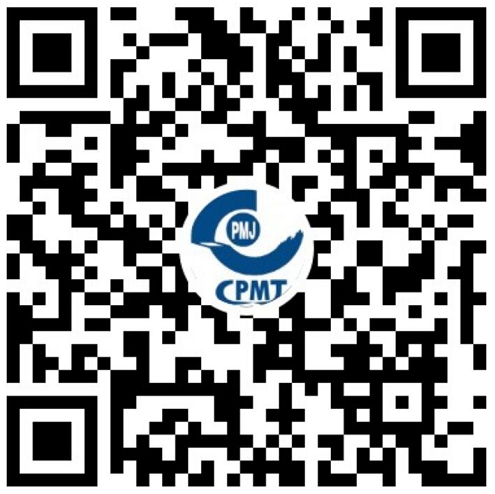By CPMJ news team
In recent years, the New Year speeches, made by Luo Zhenyu, Wu Xiaobo,and Yu Jianjun, pay-for-knowledge industry leaders, and broadcast live on major satellite TV and video websites, are becoming a new way of ringing in the new year highly enjoyed by the younger generation of netizens. Among the speakers, Luo Zhenyu is the founder of the audio programme Logical Thinking, Wu Xiaobo is a famous economist in China, who has innovated a self-media channel and offers his new insights into corporate marketing, Yu Jianjun founded Himalaya,China's biggest spoken word audio platform. They have brought a good way to alleviate knowledge anxiety for consumers in the internet era.
China's explosive pay-for-knowledge industry
Nowadays, the middle class's anxiety about knowledge, the increasingly popular use of iPhone, iPad and other intelligent hardware, the broadband cellular network tech of 4G, as well as mobile payment systems like Tencent's WeChat Pay and Alibaba's Alipay, have helped users develop their payment habits. Many factors have prompted the "pay-for-knowledge" wave to emerge in 2016. Marked by the New Year speeches by celebrities, the industry has entered a fast track of growth.
Major platforms are competing to launch pay-for-knowledge apps or other platforms, for example, Quora-like Zhihu platform launched "Zhihu Live" Q&A payment sessions, science-sharing app guokr.com launched "Zaihang" and the audio version of "Fenda", Logical Thinking launched "iget" app, and Himalaya and Dragonfly FM, Douban started subscription model in 2016 and 2017 respectively. Thus, these enterprises engaged in pay-for-knowledge industry become the leading players.
Luo Zhenyu, the founder of "Logical Thinking", boasts a huge fan base, so once his "iget" app was launched, it produced tremendous influence and his quality product strategy also has driven the whole pay-for-knowledge industry into a rapid growth period, resulting in the rapid upgrading of knowledge-paying products and platforms. Since 2017, with the prosperity of social e-commerce, the platforms with huge number of traffic on Wechat platform, such as Douban and Qianliao, have sprung rapidly, and the business model of pay-for-knowledge industry has gradually matured.
New players using differentiation strategy
The differences of business models among platforms are more obvious: iget focuses on top-quality lectures that cater to the needs of knowledge; Himalaya provides a multi-category online platform like Taobao, by selecting excellent contents through users' voting; fenda adopts the online Q&A and sharing mode, while Zhihu Live uses a live-streaming Q&A session. In June 2016, Himalaya began to charge for its knowledge-based audio lecture "Talk Well" by celebrity Ma Dong,etc. While in 2017, Dragonfly FM entered the pay-for-knowledge field by virtue of "Jiang Xun's Lecture on A Dream of Red Mansions" and Gao Xiaosong's "Talk Show of Aidajin".
Knowledge-based players have monetized knowledge via subscriptions or a one-off payment and harvested huge netwrok flow by virtue of high-quality contents. Some platforms have invested heavily in acquiring rights of influential knowledge-based contents, thus achieving huge growth of users and internet flow, and getting reward money. Their business model has changed from UGC or PGC to PUGC. For example, Himalaya has brought in celebrities such as Guo Degang, Ma Dong, and Cai Kangyong to help launch the audio lectures "Talk Well" and "Knowledge of Daily Life".
In 2016, Ximalaya.com also launched the "Knowledge Carnival" on Dec 3 with more than 2,000 knowledge-based lectures to tap the potential needs of users, in conjunction with 850 internet celebrities such as Ma Dong, Wu Xiaobo and Hua Shao. In 2018, Himalaya achieved a sales of 435 million yuan, growing nearly 220% during the festival, which dealt a blow to all those who argued that "the profit period of pay-for-knowledge industry is over". It also led to many knowledge carnivals launched by many pay-for-knowledge platforms such as Dragonfly FM.
According to the Blue Book of New Media: China's New Media Development Report (2018), released jointly by the Chinese Academy of Social Sciences and the Social Sciences Literature Publishing House in June 2018, by the end of 2017, there were 188 million knowledge-paying users in China. Seventy percent of the pay-for-knowledge contents are audio products. In 2017, the scale of China's pay-for-knowledge industry was about 4.91 billion yuan, nearly tripling the year-on-year growth. It is expected to increase to 23.5 billion yuan by 2020.
Traditional publishers embrace the changes
Traditional publishers have also been involved in the new field, constantly exploring new carriers and channels for knowledge acquisition, exploring the transformation from content producers to knowledge service providers, and have achieved good results.
Life Week, a magazine owned by SDX Joint Publishing Company, launched a "reading" app in July 2018. It selects IP from original articles of the magazine and develops related products. One example is the best-selling app "Why do we love the Song Dynasty". The magazine invited contracted scholars from the company to be the keynote speakers, offering 10 audio lessons on the social customs and daily life of the Song Dynasty. In just one month, the lecture sold 28,000 copies and earned nearly 3 million yuan. After the lecture became a "blockbuster", the magazine sold the publishing rights to a publishing house, which printed 18,000 copies. The magazine then sold its publishing rights again to video websites, obtaining a copyright fee of 2.5 million yuan. It is reported that the lecture has generated a total revenue of nearly 8 million yuan.
Guangxi Normal University Publishing House launched the pay-for-knowledge brand "Zhigeng Community" in 2015. Up to now, it has offered hundreds of audio lectures, reaching millions of users. As a content planner, Zhigeng Community launched paid lectures through Douban Time and Himalaya platforms. The topics of Zhigeng community mainly come from traditional books and statistics based on big data. Nowadays, the proportion of pay-for-knowledge business in Zhigeng community has increased from 30% to 70%.
Sichuan People's Publishing House developed the brand of "No. 3 Academy of Yandao Street" in April 2018 to develop multimedia products, which include audio&video products and radio anchor channels. In cooperation with Himalaya, Wechat and Douyin Platform, the press has actively built its own brand platforms and upgraded its knowledge services to meet users' specified requirements.
The chief of Zhigeng Community gave some suggestions on "winning the hearts of the users by contents": One is to develop psychological products. Popular psychological lectures, including mental growth, psychological counseling and self-help, account for half of the contents on many platforms. Publishers should know the psyche of the target users and differentiate them from each other in many ways. Second, to produce niche and superb contents. Users prefer to get the recognition of intelligence superiority and value on the platform targeted for minority users. Third, users care about genuine products-conclusive, analytical contents that can help them grow mentally. Fourthly, the product has to go through many updates. Today's most popular products all have been generated in continuous renewals, so publishers need to win the hearts of users. At the same time, products should have the educational function, because users ultimately want to improve themselves.
(translated by Wang Qiuhai)

















 京公网安备11010202010973号
京公网安备11010202010973号